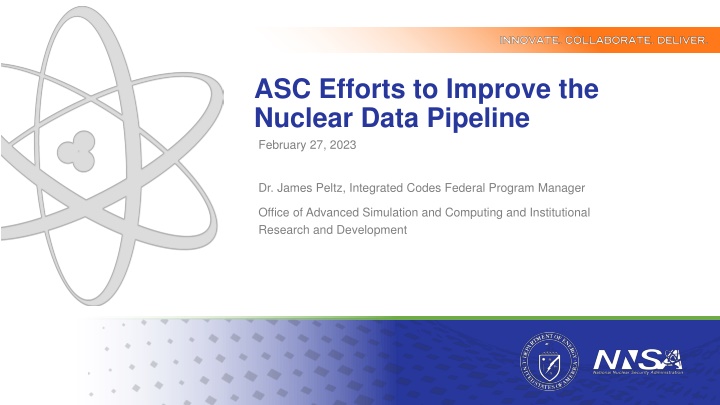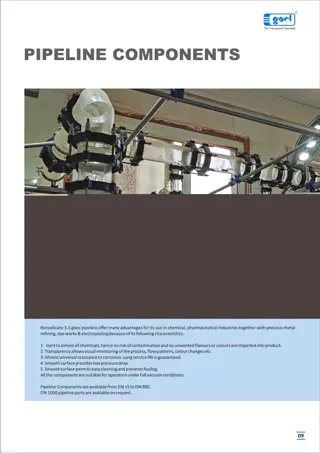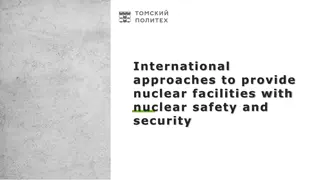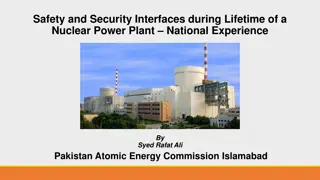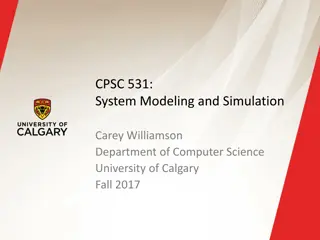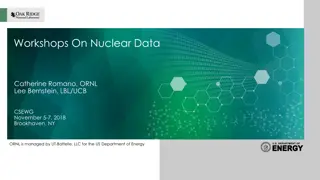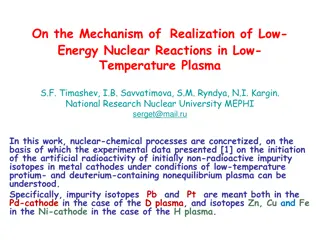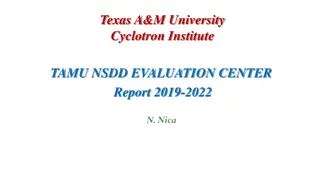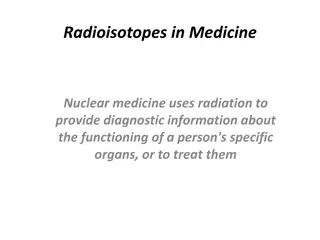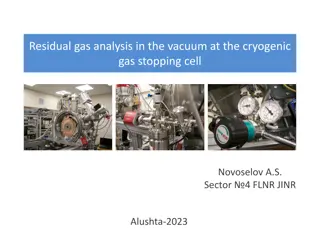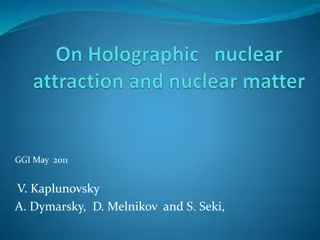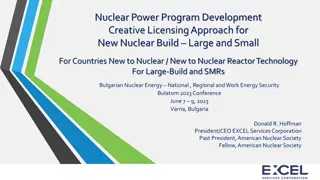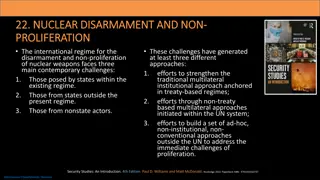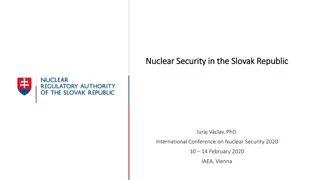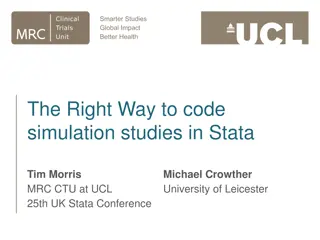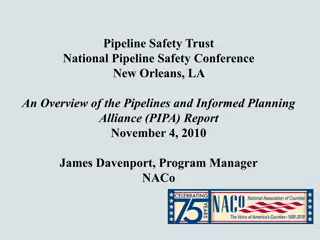Enhancing Nuclear Data Pipeline for Improved Simulation Quality
Efforts to enhance the nuclear data pipeline focus on providing high-quality nuclear physics parameters for simulation community, incorporating uncertainty studies, theory evaluations, and software improvements. Recent endeavors include evaluation of 239Pu, uncertainty quantification, processing and transport advancements, and nuclear data needs for accurate evaluations and robust uncertainty quantification.
Download Presentation

Please find below an Image/Link to download the presentation.
The content on the website is provided AS IS for your information and personal use only. It may not be sold, licensed, or shared on other websites without obtaining consent from the author.If you encounter any issues during the download, it is possible that the publisher has removed the file from their server.
You are allowed to download the files provided on this website for personal or commercial use, subject to the condition that they are used lawfully. All files are the property of their respective owners.
The content on the website is provided AS IS for your information and personal use only. It may not be sold, licensed, or shared on other websites without obtaining consent from the author.
E N D
Presentation Transcript
ASC Efforts to Improve the Nuclear Data Pipeline February 27, 2023 Dr. James Peltz, Integrated Codes Federal Program Manager Office of Advanced Simulation and Computing and Institutional Research and Development
Nuclear Data Pipeline Uncertainty Study Data Theory & Evaluation Transport Codes Experiment Benchmarking User Processing Goal: provide high quality nuclear physics parameters (e.g. fission rates, cross sections) to simulation community for NNSA mission-relevant problems for defense programs and global security Requires well-trained technical workforce and reliable data analysis procedures 2
Recent Efforts Evaluation 239Pu evaluation using data from Chi Nu, fission TPC, DANCE and covariances Preparing for ENDF/B-VIII.1 release Nuclear theory Goal is truly predictive capabilities (beyond calibrated applications) Porting to new architectures, enabling larger computations with more fidelity Uncertainties from theory/model calculations (not just parametric variations) Uncertainty Quantification Currently done mostly for highest-priority reactions/isotopes New methods in development ML-trained emulators may speed up calculations Will help determine future priorities (what needs the most improvement) 3
Recent Efforts- Continued Processing and transport Key link between nuclear physics and nuclear engineering communities Updating software across tri-Lab to use GNDS formatted data and modernize algorithms and software in processing codes Enabling inline calculations in place of pre-processed tables when appropriate Ensuring readiness for emerging GPU architectures enables high-fidelity transport simulations Verification and validation Improving SQA is essential for responsiveness Tri-lab software sharing helps GNDS adoption and encourages SQA Validation problems are being tested in multiple codes Software development Key recurring element in all areas above 4
Examples of Nuclear Data Needs Accurate experimental data are needed for evaluations Documented experimental methods and defined uncertainties Improved theory capabilities Fewer approximations, higher fidelity Consistent methods for assessing theory uncertainties Robust Uncertainty Quantification Evaluated covariances for all reactions and products Improved methods for UQ studies (time, accuracy) Validation and Verification Robust methods used across the pipeline Adoption of GNDS for ease of sharing, comparisons Modern processing and data structures Data produced as needed rather than stored in bins ML/AI methods to fill gaps 5
Benefits from an evaluator pipeline Students with strong training in nuclear theory and experience with high performance computing Trained personnel with connections to experiments and with an understanding statistical and systematic experimental errors (Familiarity with Nuclear Data Sheets) PhD and MS projects that develop computational skills within the context of nuclear theory modeling tools and potential modernization of these tools for the ASC program Multiple, open-source software options available for students Access to exascale HPC resources needed to support ensembles of complex calculations Developing an improved understanding of uncertainties and covariances which directly connect to exploring methods such as AI/ML 6
